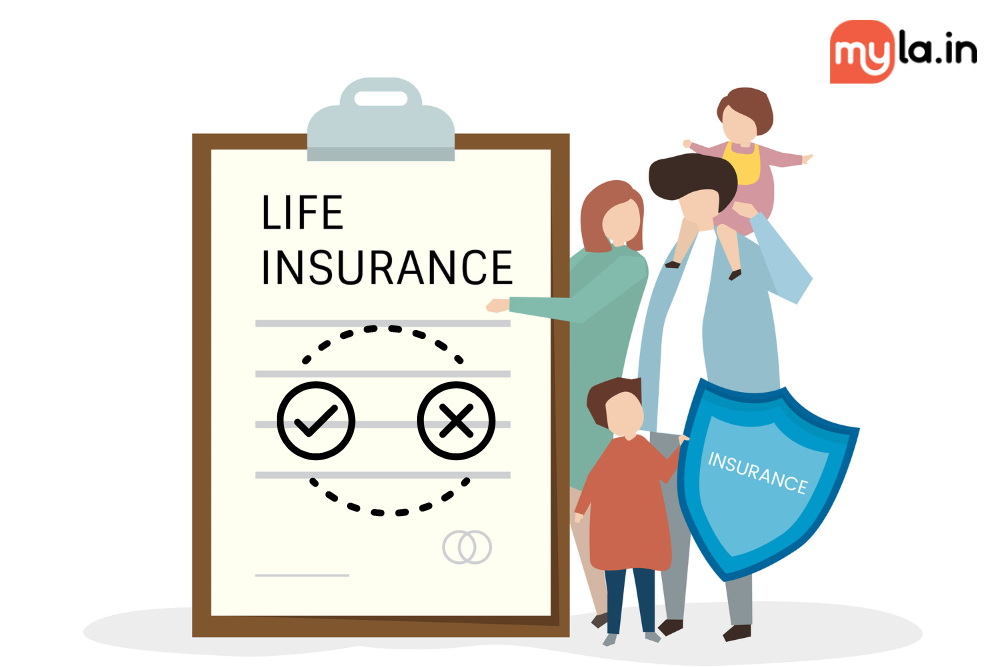Life insurance offers an added layer of financial security for your family in case of your untimely demise. It provides a financial cushion that can help cover various expenses and support your loved ones as they move forward. However, like any financial product, life insurance has its own set of pros and cons. Before buying a life insurance policy, it’s crucial to understand both its benefits and limitations.
Life insurance can be a valuable financial tool for many people, but like any financial product, it has its pros and cons. Here are some of the key points to consider:
Advantages of buying life insurance
Life insurance is frequently considered a cornerstone of financial planning. Depending on the policy type, its benefits can extend well beyond the policyholder’s lifetime. Here are several advantages of having life insurance:
Family Protection:
Life insurance provides a safety net for your loved ones if you were to pass away unexpectedly. The death benefit can help cover immediate expenses such as funeral costs, outstanding debts, and ongoing living expenses.
Income Replacement:
For families that rely on your income, life insurance can replace lost income, ensuring that your loved ones can maintain their standard of living. This can be especially important for families with young children or a stay-at-home parent.
Debt Repayment:
Life insurance can be used to pay off debts such as mortgages, loans, or credit cards, preventing your family from inheriting your debt burden. This can provide peace of mind knowing that your loved ones won’t be financially strained.
Estate Planning:
Life insurance can play a crucial role in estate planning by providing liquidity to pay estate taxes and other expenses. It can also be used to equalize inheritances among beneficiaries or to leave a legacy to charity.
Tax Benefits:
The death benefit paid out to beneficiaries is typically not taxable as income. Additionally, the cash value accumulation in certain types of policies may grow tax-deferred, providing potential tax advantages.
Cash Value Component:
Some types of life insurance, such as whole life or universal life, include a cash value component. This component accumulates over time and can be accessed by the policyholder through policy loans or withdrawals. It can serve as a source of emergency funds or supplement retirement income.
Disadvantages of buying life insurance
While life insurance is typically a worthwhile investment, it’s important to carefully consider its drawbacks before deciding to purchase a policy.
Costly Premiums (Depending on Your Health, Age):
Permanent life insurance policies, such as whole life or universal life, can have higher premiums compared to term life insurance. The cost of life insurance can vary widely depending on factors such as age, health, coverage amount, and type of policy. This can make them more expensive and less affordable for some individuals, especially for older individuals or those with pre-existing health conditions.
Complexity:
Understanding the different types of life insurance policies, such as term life, whole life, and universal life, as well as their features and benefits, can be complex. It’s important to carefully review and compare policies to ensure they meet your needs.
Investment Returns:
While certain types of life insurance policies offer a cash value component that can grow over time, the returns may not always be competitive compared to other investment options. Policyholders should carefully consider the investment aspect of these policies.
Lapse Risk:
If you fail to pay your premiums, your life insurance policy could lapse, and you could lose coverage. It’s important to budget for premiums and ensure they are paid on time to maintain coverage.
Not Always Necessary:
Depending on your financial situation and goals, life insurance may not be necessary. For example, if you are single with no dependents, or if you have sufficient assets to cover your final expenses and provide for your loved ones, life insurance may not be a priority.
Overall, life insurance can be a valuable financial tool for many people, providing peace of mind and financial security for their loved ones. With so many different policies out there, it’s no surprise that one size doesn’t fit all. However, it’s important to carefully consider your needs and goals when deciding if life insurance is right for you. To find the best fit for your specific financial situation, consider consulting a trusted financial advisor.
